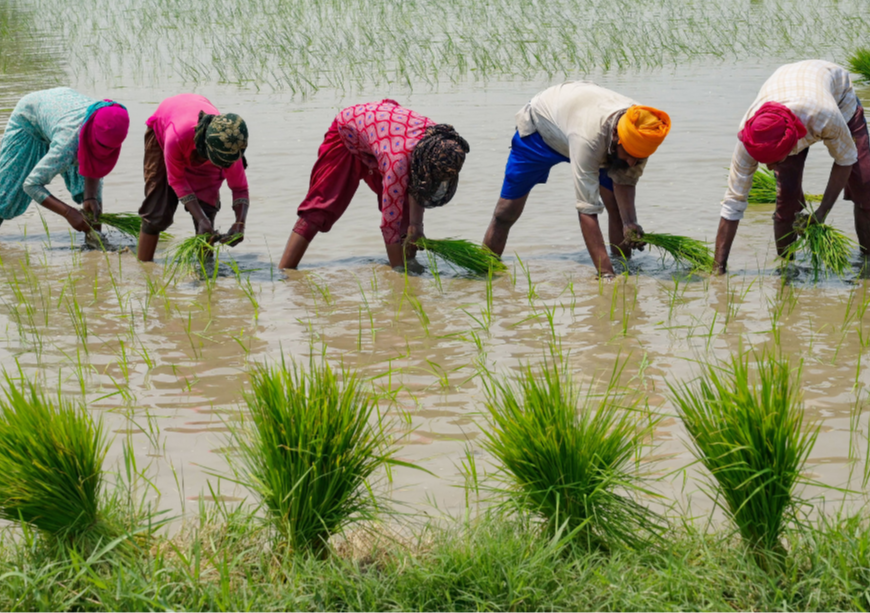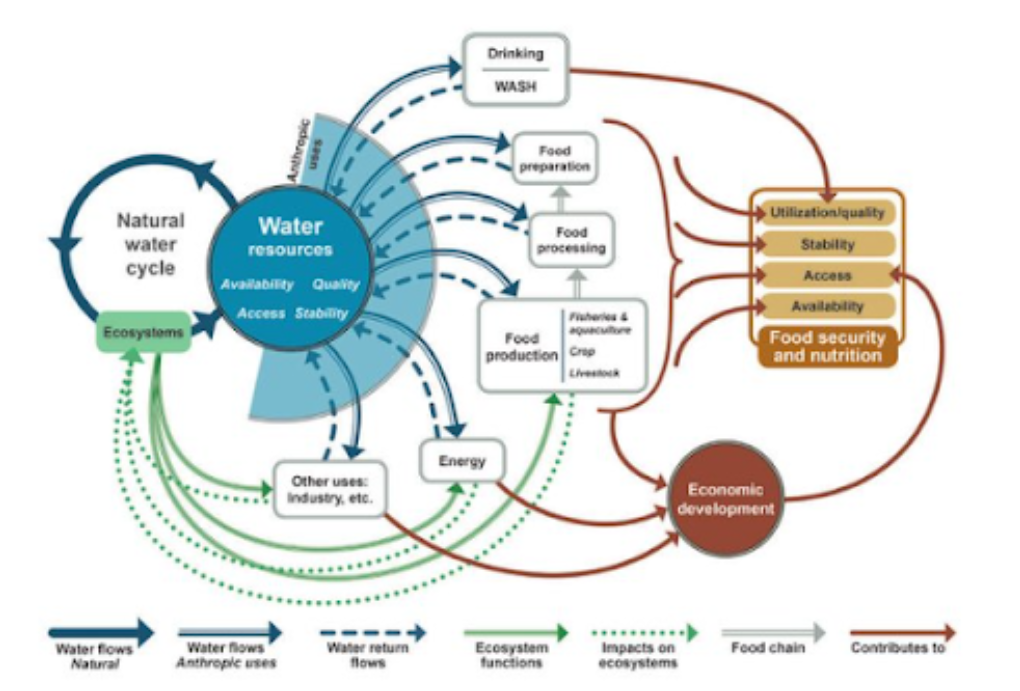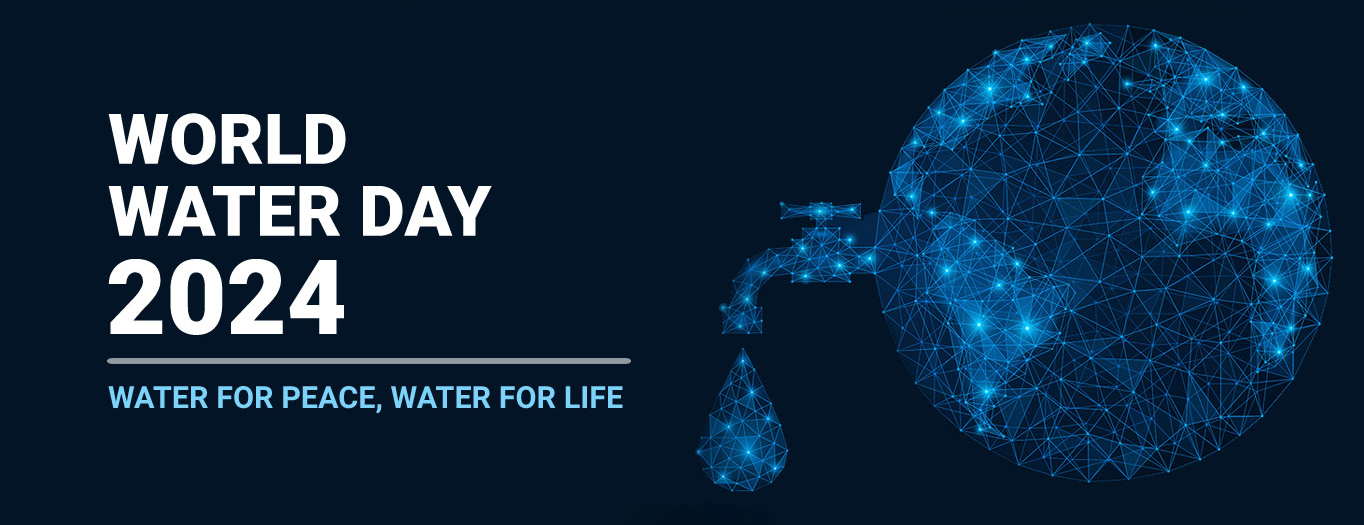
This article is a part of the essay series: World Water Day 2024: Water for Peace, Water for Life
Water plays a crucial role in both the stability and prosperity of the world, especially when it comes to food security. It serves as a fundamental resource for ensuring agricultural production, supporting crop growth, and sustaining livestock. Access to adequate and reliable water supply is essential for ensuring food security, as it directly impacts agricultural productivity and the availability of nutritious food for populations worldwide. Furthermore, water plays a vital role in stabilising economies, particularly in regions where agriculture forms a significant portion of the economy. Conversely, water scarcity or inadequate access to water can destabilise economies, exacerbate poverty, and lead to social unrest. In addition to its role in agriculture and economic stability, water also contributes to overall societal well-being and public health. Ensuring equitable access to clean water for all is therefore essential for promoting stability, prosperity, and social cohesion within communities and across nations (Figure 1).
Figure 1
Source: Water and Food Security -linkage
Despite the world's capacity to produce ample food to sustain its 8 billion inhabitants, a staggering 828 million individuals endure daily hunger. Even with efforts to recover from the economic ramifications of the COVID-19 pandemic, the United Nations anticipates a significant shortfall in achieving the Sustainable Development Goal of “Zero Hunger” by 2030. By the close of the decade, projections suggest that 670 million people will still grapple with hunger. Irrigated agriculture, encompassing 20 percent of the total cultivated land, stands as a cornerstone, contributing 40 percent of the global food output. Remarkably, irrigated farming proves at least twice as productive per unit of land as rain-fed agriculture, facilitating heightened production and agricultural diversification.
As the population swells, cities expand, and climate patterns shift, the competition for water resources is poised to intensify, particularly impacting agricultural sectors. Agriculture’s contribution to climate change, manifested through its emissions of greenhouse gases, further compounds the challenges by disrupting the planet’s water cycle, thereby heightening uncertainties and risks associated with food production. Projections indicate that by 2030, South Asia and Southern Africa will emerge as the most vulnerable regions, facing acute food shortages exacerbated by climate change.
With the global population projected to surpass 10 billion by 2050, the demand for sustenance and resources will surge, necessitating food and fibre to meet basic needs. This escalating demand, coupled with rising incomes in developing regions driving increased consumption of calories and diverse foodstuffs, underscores the imperative to expand agricultural production by approximately 70 percent by 2050.
Complexity of the water–food nexus
The intricate network of our food systems heavily relies on water, a resource often overlooked but undeniably vital. Its scarcity or inadequacy resonates far beyond arid fields, affecting every aspect of the intricate journey from farm to table. At the core of agricultural production, water serves as the lifeblood nurturing crops from germination to harvest. Insufficient water availability hampers plant growth, reduces crop yields and poses threats to farmers' livelihoods. Yet, the repercussions extend beyond agricultural fields. Inadequate water disrupts the fragile equilibrium of ecosystems, endangering biodiversity and compromising the resilience of agricultural landscapes.
The connection between water and food systems reveals a profound interdependence crucial for sustaining life on our planet. It constitutes a complex web of interactions, delicately balancing water availability, quality, and management with food production, distribution, and consumption. Water quality assumes a pivotal role in determining soil health, nutrient availability, and the resilience of crops, underscoring the indispensable role water plays in shaping the very essence of our food.
Nevertheless, this connection faces significant challenges. Water scarcity, pollution, and ineffective management practices threaten the stability and resilience of food systems worldwide. Diminished water resources impede agricultural productivity, worsen food insecurity, and perpetuate cycles of poverty and vulnerability in communities. Moreover, the ramifications of water scarcity extend beyond the realm of food production, resonating across economies, ecosystems, and societies at large. Competing for dwindling water resources can escalate tensions, fuel conflicts, and deepen social inequalities, highlighting the extensive implications of the water-food nexus.
As water scarcity intensifies, its ripple effects cascade through food systems, impacting processing, distribution, and consumption. Scarce water resources hinder food processing industries, limiting their ability to clean, sanitise, and preserve food products. This compromises food safety and quality, posing health risks to consumers. The transportation and distribution of food heavily rely on water-intensive logistics. Insufficient water disrupts supply chains, resulting in inefficiencies, food wastage, and heightened costs.
Vulnerable communities, already grappling with food insecurity, bear the brunt of these disruptions, exacerbating hunger and malnutrition.
Additionally, water scarcity intensifies competition and discord over limited resources, escalating social tensions and instability. In regions already contending with political turmoil, inadequate access to water exacerbates existing challenges, perpetuating cycles of poverty and susceptibility. Beyond immediate repercussions on food production and availability, water scarcity contributes to climate change. Decreased water reservoirs lead to soil degradation, desertification, and deforestation, exacerbating the environmental toll of unsustainable agricultural practices.
Addressing the intricacies of this interconnectedness necessitates multifaceted solutions that transcend conventional boundaries and adopt integrated approaches to water and food management. Investing in water-efficient technologies, advocating for sustainable agricultural practices, and cultivating resilient food systems are crucial measures to ensure the ongoing viability and vitality of our intertwined water-food nexus. Only through unified action and collective stewardship can we guarantee that water continues to serve as a source of sustenance and helps ensure food security.
Shoba Suri is a Senior Fellow at the Observer Research Foundation.
The views expressed above belong to the author(s). ORF research and analyses now available on Telegram! Click here to access our curated content — blogs, longforms and interviews.





 PREV
PREV



